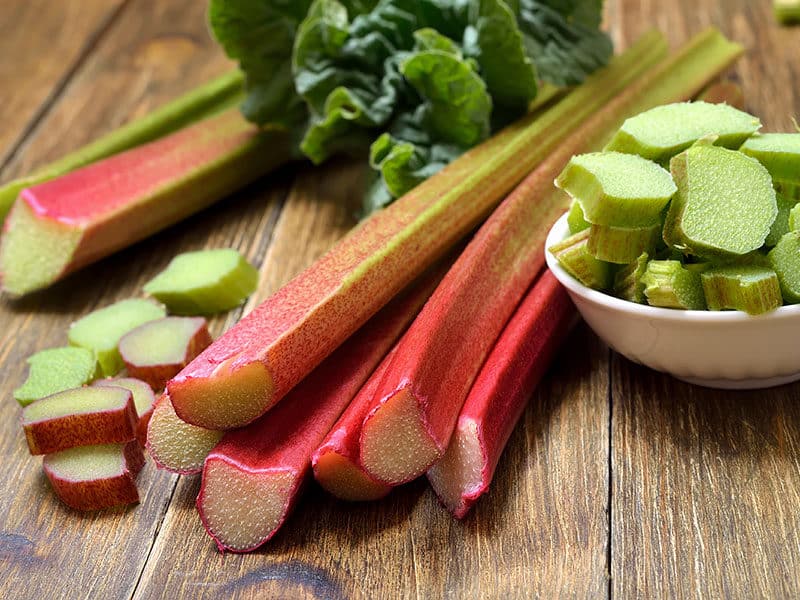As a gardener, I’m always looking for organic ways to boost my plants’ growth and health. Recently, I came across the idea of using spent coffee grounds as a soil amendment for rhubarb. This made me wonder – does rhubarb actually like coffee grounds? I decided to dig into the details to find out.
An Overview of Rhubarb
First, let’s start with a quick rhubarb primer. Rhubarb (Rheum rhabarbarum) is a hardy perennial vegetable prized for its tart, edible stalks. It thrives in cooler climates and prefers nutrient-rich, well-drained soil with a pH between 5.5-6.5.
Rhubarb emerges early in spring and benefits from fertilization to support vigorous growth. It is a heavy feeder during the growing season. As a result gardeners are always seeking organic ways to provide nutrients without disrupting soil balance.
This is where coffee grounds come into play as a potential soil addition. But are they a good match for rhubarb’s needs? Let’s analyze further.
The Potential Benefits of Coffee Grounds
Coffee grounds offer a range of general benefits as a soil amendment
- Add organic matter to improve soil structure
- Provide key nutrients like nitrogen, phosphorus, and potassium
- May alter soil pH toward the slightly acidic side
- Attract earthworms and beneficial microbes
- Deter certain garden pests like slugs and snails
These characteristics seem aligned with rhubarb’s preferences. However, there are also some potential drawbacks to consider.
Examining the Drawbacks of Coffee Grounds
While coffee grounds can enrich soil, inappropriate use may cause problems:
- Excessive amounts lower pH too far – rhubarb prefers only mildly acidic conditions
- Too much nitrogen from grounds encourages leafy growth over stalk production
- Nutrient imbalance since grounds lack other key elements rhubarb needs
Additionally, raw grounds can potentially harbor harmful fungal spores. Composting grounds first is advised to destroy any pathogens.
Best Practices for Using Coffee Grounds with Rhubarb
Based on their pros and cons, here are some best practices for successfully using coffee grounds with rhubarb:
- Compost grounds first before applying to soil
- Mix into soil around plants – avoid direct contact with foliage
- Use sparingly – no more than a thin 1″ layer worked into the top few inches of soil
- Combine with other balanced organic amendments like compost
- Re-test soil pH after each application to monitor acidity
- Adjust quantity and frequency based on soil test results and plant response
Following these guidelines will help you leverage the perks of coffee grounds while avoiding potential pitfalls with rhubarb plants.
The Verdict: Yes, in Moderation
Compost first
Mix into soil, avoid foliage
Use thin layers, 1″ maximum
Combine with compost and organic fertilizers
Retest pH routinely
Adjust rate based on soil and plant feedback
Follow these tips and coffee grounds can be a beneficial supplement to an overall soil health regimen for rhubarb. But be careful not to over-apply – too much of a good thing can backfire and cause issues. Overall, rhubarb does appreciate coffee grounds, but only in moderation as part of a balanced fertility program.
An Ideal Amendment for Rhubarb Health
Beyond coffee grounds, another excellent organic amendment for rhubarb is aged manure compost. It provides a wealth of balanced nutrition and high microbial life to enhance soil and plant vigor.
Here’s a great option to try:
- Organic Rhubarb Compost – blended just for rhubarb with aged manure, loam, clay, and nutrients
- Feeds up to 3 months, releases nutrients slowly
- Encourages beneficial bacteria and fungi
- Improves moisture retention and soil structure
- Helps balance acidity for optimal rhubarb growth
Pair this tailored compost with strategically used coffee grounds, and your rhubarb will be off to a great growing season!
Give Your Rhubarb a Healthy Head Start
Rhubarb is a hungry plant that thrives when its soil contains ample organic matter and a balanced nutritional profile. Coffee grounds can play a supporting role when used properly, but shouldn’t be relied on alone.
Combine coffee grounds with compost, manure, and other organic amendments tailored to rhubarb’s needs. This will provide an ideal growing environment to help your rhubarb plants establish quickly and yield plentiful sweet stalks.
What Plants Like Coffee Grounds
FAQ
What is the best fertilizer for rhubarb?
What plants do not like coffee grounds?
What plant benefits most from coffee grounds?
What should not be planted near rhubarb?
Does rhubarb eat coffee grounds?
Fresh coffee grounds: no, they like soil pH between 6.0 and 6.8. Rhubarb is a super vegetable which likes a “cup of coffee”, well in powder for, too. It is extremely rich in vitamins, but unlike other plants, it packs them in its famously red stalks.
Is rhubarb good?
Rhubarb is a nutritious food that contains phytochemicals that play an important role in health, they help protect the body against metabolic disorders, have anti-inflammatory and antioxidant action, and improve digestion and intestinal function.
What is the relationship between rhubarb plants and coffee grounds?
In conclusion, the relationship between rhubarb plants and coffee grounds is complex. While coffee grounds offer numerous benefits such as enriching the soil and attracting beneficial organisms, their acidity and high nitrogen content can be a double-edged sword for rhubarb plants.
Can you use coffee grounds on rhubarb plants in the winter?
Yes, you can use coffee grounds on your rhubarb plants in the winter, but you might not see as much benefit as you would during the growing season. Rhubarb plants are dormant in the winter, so they won’t be actively growing or taking up nutrients from the soil.

